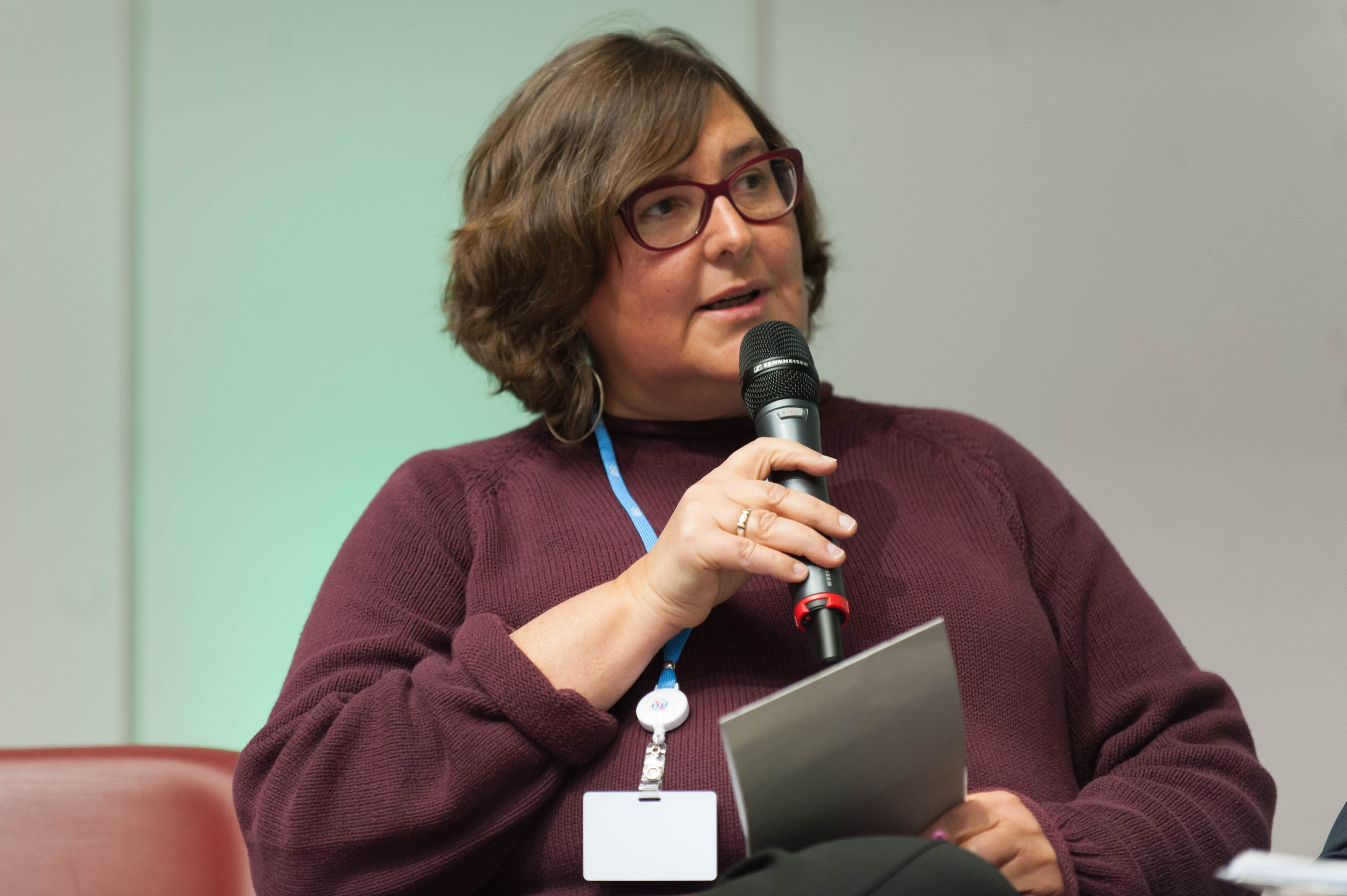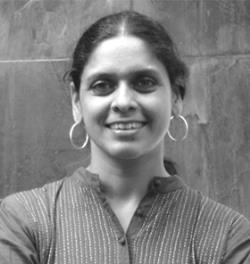WSIS+20: Reclaiming a people-centred information society – priorities for the global South
Association for Progressive Communications
Session 141
Session topic and goal
WSIS+20: Reclaiming a people-centred information society – priorities for the global South. This session is oriented to provoke reflection to stimulate, contribute to and help frame the deliberations in upcoming WSIS+20 events from a civil society and social justice perspective.
Session format
Spectrogram exercise.
Structure
1. Introduction to the session and the spectrogram exercise
2. Spectogram
- The WSIS vision was for a people-centred human rights oriented information society. This vision is more elusive now than ever. Agree / Disagree
- Inclusion has become a central component of digital policy and implementation. Agree / Disagree
- Civil society's influence in the digital space is more powerful now than 20 years ago. Agree/ Disagree
3. Next steps
- In one word. What do you want to see come out of WSIS +20.
4. Brief presentation of the Global Information Society Watch special edition - WSIS+20: Reimagining horizons of dignity, equity and justice for our digital future
Facilitators: Anriette Esterhuysen (APC), Anita Gurumurthy (IT for Change) and Valeria Betancourt (APC).
.jpg?maxwidth=250)
Anriette Esterhuysen was the executive director of APC until March 2017. Prior to joining APC, Anriette was executive director of SANGONeT, an internet service provider and training institution for civil society, labour and community organisations. She was active in the struggle against Apartheid from 1980 onwards. From 1987 to 1992 she did information and communication work in development and human rights organisations in South Africa and Zimbabwe.
Anriette, with many others, helped establish email and internet connectivity in Southern Africa. SANGONeT hosted a Fidonet hub that provided universities and non-governmental organisations in, among other places, Malawi, Zambia and Zimbabwe, with email links to global networks as part of a collaboration between APC and the United Nations Development Programme. Anriette has served on the African Technical Advisory Committee of the UN's Economic Commission for Africa's African Information Society Initiative and was a member of the United Nations ICT Task Force from 2002 to 2005, the World Summit on the Information Society (WSIS) Working Group on Financing Mechanisms, and the Commission on Science and Technology for Development Working Group on Internet Governance Forum (IGF) Improvements. She was a member of the Multistakeholder Advisory Group of the Internet Governance Forum from 2012 to 2014.
Anriette was one of five finalists for IT Personality of the Year in South Africa in 2012, an award which recognises a person who has made an outstanding impact on the South African ICT industry. She was the only female and only civil society finalist. She was inducted into the Internet Hall of Fame as a Global Connecter in 2013. Currently Anriette is a member of the Global Commission on Internet Governance and the Council of the NETmundial Initiative. She has published extensively on ICTs for development and social justice. She holds a BA in social sciences and postgraduate qualifications in history of music and information sciences from the University of the Witwatersrand in Johannesburg, South Africa.

Anita Gurumurthy is a founding member and Executive Director of IT for Change where she leads research and advocacy on data and AI governance, platform regulation, and feminist frameworks on digital justice. She serves as an expert on various bodies – including as co-chair of the T20’s digital transformation working group on platform governance and has been part of the High Level Committee of the NetMundial+10 under Brazil’s leadership , the UN Secretary-General’s 10-Member Group on Technology Facilitation, and the Paris Peace Forum’s working group on algorithmic governance. Anita is also a Board member of global justice organizations such as the ETC Group, and University centers such as the Tech & Policy Lab at the University of Western Australia, and International Development and Social Change program of Loughborough University. Anita contributes regularly to academic and media spaces

Valeria Betancourt has led APC's policy, advocacy and governance work since 2010. She is a longtime activist in the field of human rights and the internet, with a special focus on the areas of information and communication technologies for development, digital inclusion, digital rights and internet governance in the context of the global South. In 2013 and 2015, Valeria was awarded a LACNIC Outstanding Achievement Award and a FRIDA Programme Recognition for contributing to development and the internet in Latin America. Her background is in sociology and political science. She holds a Master's degree in cultural studies and communication. She lives in Spain.
-
 C1. The role of governments and all stakeholders in the promotion of ICTs for development
C1. The role of governments and all stakeholders in the promotion of ICTs for development
-
 C6. Enabling environment
C6. Enabling environment
-
 C11. International and regional cooperation
C11. International and regional cooperation
As the WSIS+20 milestone approaches, WSIS action line facilitators and all digital governance stakeholders should reflect on the advancements of the last two decades while placing a strong emphasis on inclusivity. The multistakeholder model, which recognizes the intricate interplay of various sectors and actors to shape digital policy, is fundamental in ensuring WSIS remains a dynamic process. By building on their strong commitment to multistakeholderism, fostering cooperation – including, critically, with experts from the technical community – and discussing the potential challenges, evolving technologies and trends within the digital landscape, WSIS communities can prepare for and look beyond the 20-year milestone.
There are unquestionably remaining challenges that persist since the time of the WSIS, such as inclusion and equality. No preparations for WSIS+20 could happen without identifying those challenges and the way in which they are expressed today. But we also need to clearly understand what has changed in all these years and what the trends are. What are the long term opportunities and risks in areas that are critical today such as digital rights, environmental sustainability and sustainable development, digital inclusion, cybersecurity, artificial intelligence and automated decision-making, surveillance, concentration of corporate power, among others.
So, the underlying question that should guide preparations for WSIS+20 is, at the end of the day, what do we want to achieve, where do we want to go, what type of digital society we want and what do we need to build it.
-
 Goal 5: Achieve gender equality and empower all women and girls
Goal 5: Achieve gender equality and empower all women and girls
-
 Goal 10: Reduce inequality within and among countries
Goal 10: Reduce inequality within and among countries
-
 Goal 16: Promote just, peaceful and inclusive societies
Goal 16: Promote just, peaceful and inclusive societies
-
 Goal 17: Revitalize the global partnership for sustainable development
Goal 17: Revitalize the global partnership for sustainable development
https://www.giswatch.org/2024-special-edition-wsis20-reimagining-horizons-dignity-equity-and-justice-our-digital-future
@APC_News